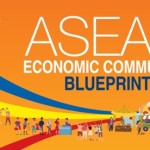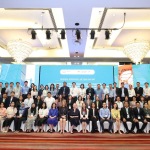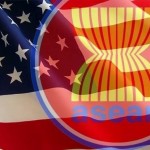Total number of posts 463.
In the morning of April 13, Gia Lai Department of Industry and Trade in collaboration with the Vietnam Chamber of Commerce and Industry - VCCI Da Nang organized a propaganda conference on the Regional Comprehensive Economic Partnership (RCEP), some notes when exporting goods to the Chinese market.
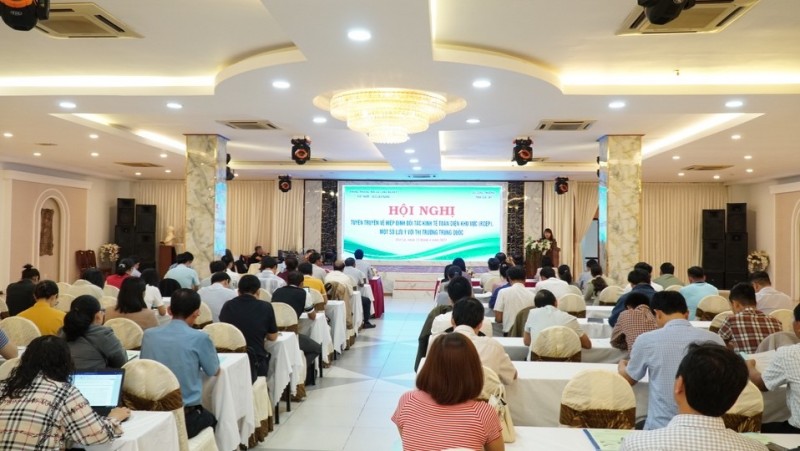
View of the Conference. Photo: Phuc Lam
Speaking at the conference, Ms. Dao Thi Thu Nguyet – Deputy Director of Gia Lai Department of Industry and Trade said: "In order to raise awareness of all sectors and levels on international economic integration; at the same time, support businesses, cooperatives and business households in Gia Lai province to access Vietnam's commitments in the Regional Comprehensive Economic Partnership Agreement (RCEP) and get closer to the Chinese market. From there, understand and apply in the most beneficial way to develop production and business in a sustainable way, improve competitiveness in the domestic and international markets."
Accordingly, more than 100 delegates representing departments, departments, branches, unions, enterprises, cooperatives and production and business establishments were approved by Master, Lawyer Nguyen Van Duc – Deputy Head of Legal and Origin Certification Department, Arbitrator of Ho Chi Minh City Commercial Arbitration Center, The branch of the Vietnam Chamber of Commerce and Industry in Ho Chi Minh City, conveyed some contents related to the Regional Comprehensive Economic Partnership Agreement RCEP as well as some notes when exporting goods to China.
"RCEP is the world's largest free trade agreement, consisting of 15 member countries: 10 ASEAN countries and 5 partners (China, Japan, South Korea, Australia and New Zealand). RCEP creates a free trade area with a scale of 2.2 billion consumers, accounting for about 30% of the global population and 30% of GDP, opening up many opportunities and challenges for participating countries, including Vietnam in general and Gia Lai province in particular." – Mr. Duc emphasized.
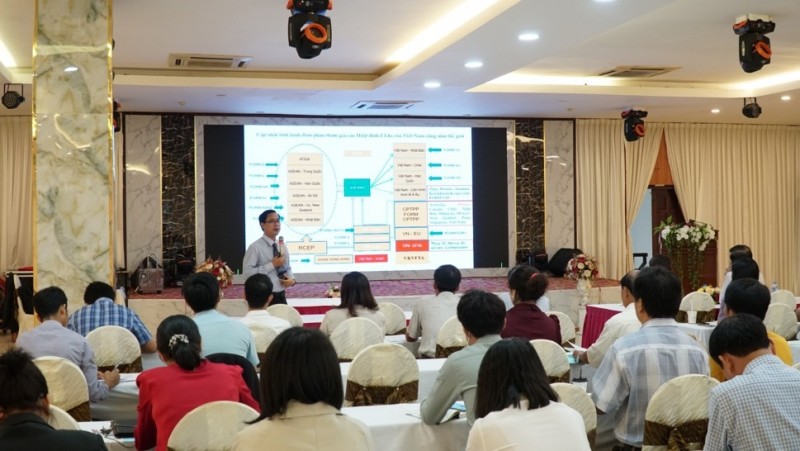
Master, Lawyer Nguyen Van Duc conveyed some contents related to the RCEP Agreement as well as some notes when exporting goods to China
China is currently the largest trading partner and also the largest import and trade deficit market of Vietnam, as well as the 2nd largest export market of Vietnam, after the United States. By joining RCEP, Vietnam will enjoy preferential tariffs at the basic rate of 0% for nearly 90% of traded goods; rules of origin valid throughout the RCEP geographical area; stronger regulation of cross-border trade in services and foreign investment; Many new rules on facilitating e-commerce.
Gia Lai province has the advantage of agricultural development with more than 97,000 hectares of coffee, output of 250,000 tons / year; pepper 13,000 ha, output more than 47,000 tons / year; rubber nearly 80,000 hectares, dry latex output is over 117,000 tons / year and there are about 18,000 hectares of fruit trees of all kinds ... and many other agricultural products are a rich source of raw materials for the production, processing and export of agricultural products.
Besides, the province has more than 30 enterprises exporting key commodities such as coffee, pepper, rubber, bananas and sweet potatoes... to China, including 3 prestigious export units voted by the Ministry of Industry and Trade in 2021 including: Vinh Hiep Co., Ltd., Hoa Trang Import Export Co., Ltd. and Bien Ho Tea Joint Stock Company. These enterprises have made good use of opportunities from free trade agreements such as RCEP and EVFTA to expand markets and increase export value.
According to Deputy Head of Legal and Certificate of Origin Department, Branch of the Vietnam Chamber of Commerce and Industry in Ho Chi Minh City Nguyen Van Duc, in 2022, China has opened the official import of many agricultural products such as sweet potatoes, bird's nest, passion fruit, durian ... However, to enter this market, it must strictly meet technical standards, requirements on food hygiene and safety, meet planting area codes and packaging facilities.
Therefore, in order to take advantage of opportunities from RCEP to breakthrough exports to China, Gia Lai province needs to improve the quality and added value of goods, comply with China's food safety and environmental protection standards, understand the rules of origin and customs procedures, carefully check partner information, technical barriers in international trade, diversify export items and understand the tastes of Chinese consumers... By doing so, Gia Lai will be able to increase exports to China and contribute to enhancing its economic position in the Central Highlands region.








